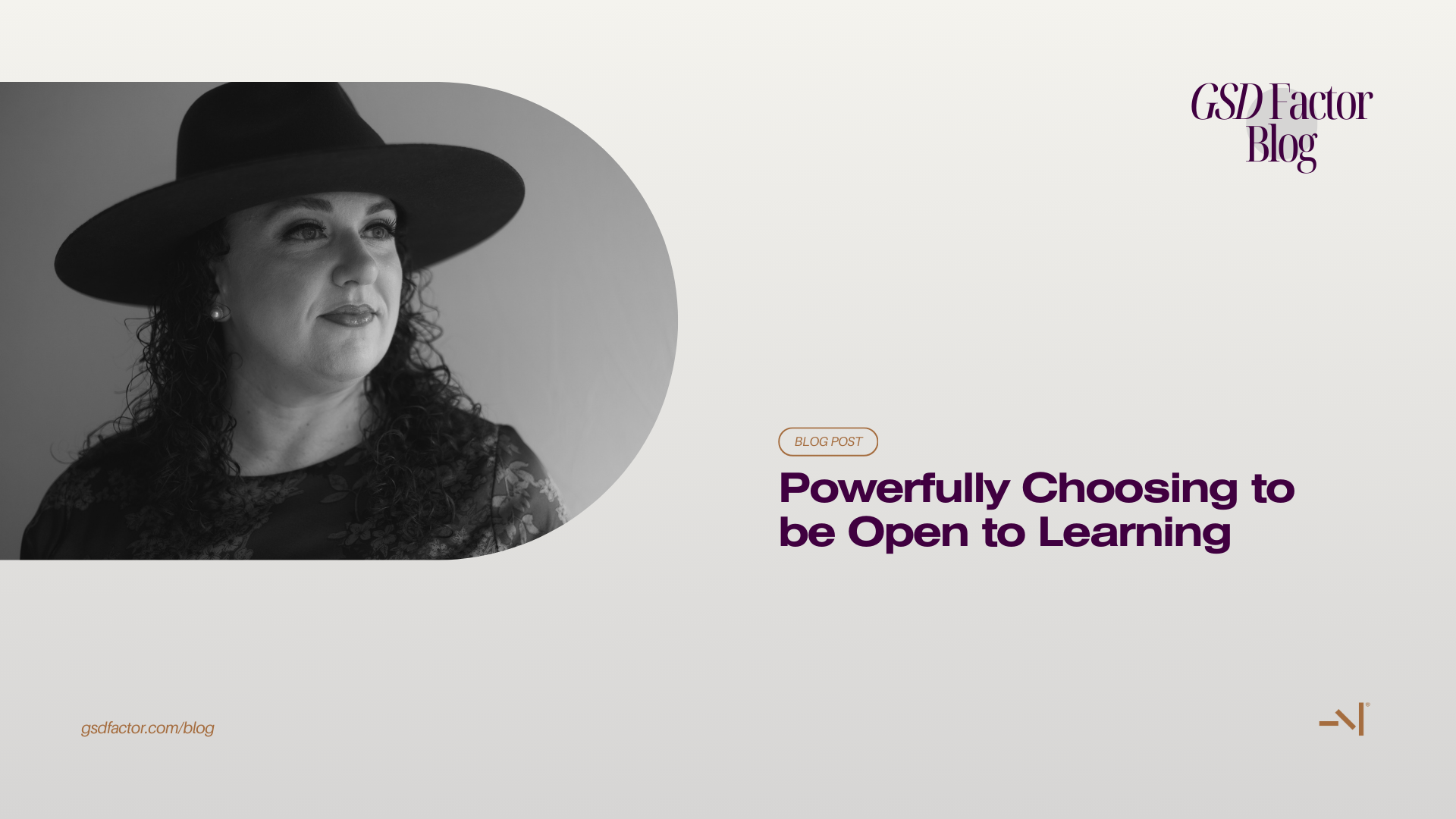July 16th, 2024

If we are open, we can learn something from everything, be it from people or from something we read or observe. Who knows, maybe a billboard has the two words of encouragement you need at that moment.
As I’ve shared in my book, growing up, my dad would play motivational cassette tapes during long car drives. It’s where my sister and I were introduced to the likes of Zig Ziglar and Steve Covey as we were en route to countless ballet camps and swim meets.
Nowadays, as parents to our tiny humans, we will learn from reading, podcasts, movies, or even shows. In our busy lives, we are always grateful for the little lessons of wisdom or guidance that are dropped in our laps.
My husband and I joined the Ted Lasso bandwagon later than most, but have really enjoyed it. In season one of Ted Lasso, there is a great scene in the pub with characters Ted and Rupert playing darts. The scene is set with Ted playing with his non-dominant hand. Rupert immediately assumes that Ted can’t play darts. A wager is agreed upon, and before long, Ted starts playing with his dominant hand while waxing eloquent about a quote he had seen: “Be curious, not judgemental.”
The lesson that Ted not only talks about but demonstrates in a GSD Factor manner is that you can never underestimate someone. Instead, you need to be curious, asking questions because you will learn something. The trick is not learning something too late. Had Rupert been curious about him and not judgmental, the lesson he would have learned was that Ted, who ultimately won the wager on the final throw, was actually an excellent dart player.
This less than two-minute television scene encapsulates many great nuggets of wisdom that can be applied to The GSD Factor Life.
We recently saw the family movie Inside Out 2. It has given us a great framework as we are navigating the endless emotions with our tiny humans. Given we have all seen both movies we can use some of the scenes or the characters as a reference point which is super helpful. In this second movie they really focus on who the main character, Riley, is becoming. Emotions Joy and Anxiety believe they individually dictate how and what Riley should feel and the responding consequences that result from those choices. However, at the end of the film it’s apparent that all humans are beautifully complex, and therefore, we need all our emotions. It’s both / and. We can’t let just one emotion dominate or control us. I wouldn’t necessarily call it emotional balance but an integration of all emotions. There is a time and season for each one, and owning and being present with each and everyone creates this deeply authentic person that can live out life.
How often are we faced with sadness or fear and don’t feel like we can sit with those feelings, but in that moment it would be the best thing for us? How many times, as entrepreneurs, are we feeling highly motivated one day and feeling lazy the next? As I’ve said before, there are seasons of doing and seasons of being, and as GSDers, we need all of them. It’s both / and.